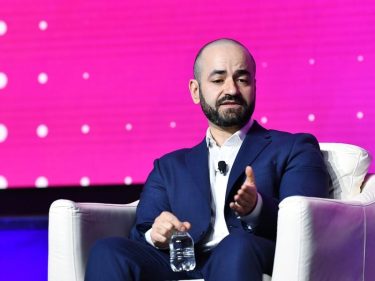Nigeria probes Binance for facilitating terror finance and money laundering as two executives remain detained
Nigerian officials are demanding the exchange hand over transaction data of its users in the country as customers flee to rivals.
Nigerian authorities who have detained two Binance executives are investigating whether the crypto exchange is facilitating terrorism financing, money laundering, and other forms of illicit finance, officials told DL News on Thursday.
As part of the probe, Nigerian officials are demanding access to details of Binance’s customers in the African nation, sources close to the investigation said. They asked not to be named discussing an ongoing probe.
The developments indicate that a probe into market manipulation and the potential impact of Binance’s offerings on Nigeria’s currency, the naira, is expanding.
The two executives, an American and a British citizen, were detained on Monday after arriving in the country at the invitation of the government to address questions about its operations, officials told DL News.
Grave escalation
They have not been publicly identified, and there have been no reports they have been charged.
But their situation marks a potentially grave escalation of a long simmering dispute between the Nigerian government and the world’s biggest crypto exchange.
Binance media representatives did not respond to DL News’ multiple requests for comment.
The Binance website is no longer accessible to Nigerians and some users have reported moving their trading activity to alternative platforms like KuCoin and Bybit.
“Crypto peer-to-peer trading groups are springing up on Telegram” recently in response, Aliyu Hassan, a crypto merchant, told DL News.
Hassan said he averaged $50,000 worth of volume in weekly peer-to-peer trading of Tether’s USDT stablecoin on Binance before the recent ban.
He warned that such trading groups on messaging platforms like Telegram were not as safe as exchanges like Binance that offered escrow and mediation.
‘The government’s action is empowering the crypto black market and that is dangerous.’
Rume Ophi, Stakeholders in Blockchain Technology Association of Nigeria
Crypto and blockchain advocates like Rume Ophi, executive secretary of the Stakeholders in Blockchain Technology Association of Nigeria, say the government’s measures may force traders to underground channels that cannot be adequately policed.
“The government’s action is empowering the crypto black market and that is dangerous,” Ophi said.
DL News could not immediately ascertain if the detained Binance officials were cooperating with the investigation. Sources close to the matter said both Binance employees asked to be released to their embassies in Nigeria.
Under a government-approved system, Binance can furnish officials with customer data. That includes transaction history, blockchain data, and personal identification information among other user data categories.
Blocking access
Earlier this month, the Nigerian Communications Commission, the country’s telecoms regulator, ordered internet service providers to block access to Binance, Kraken, Coinbase and other crypto exchange websites.
That action came after Binance and other crypto exchanges were accused of aiding and abetting currency speculation and forex market manipulation from several departments in Nigeria’s government.
On Tuesday, Nigeria’s central bank governor Olayemi Cardoso drew attention to funds moving across crypto platforms.
“We are concerned that certain practices go on that indicate illicit flows going through a number of these entities and suspicious flows at best,” Cardoso said at a press conference. “In the case of Binance, in the last one year alone, $26 billion has passed through ‘Binance Nigeria’ from sources and users who we cannot adequately identify.”
In November, Binance pleaded guilty to violating US banking law and agreed to pay a $4.3 billion penalty for failing to prevent terror groups and other sanctioned entities from using the platform to launder and manage their funds.
It appears that Nigerian authorities are now developing a similar line of inquiry.
Updated on February 29 to report comments by Olayemi Cardoso, the Nigerian central bank governor.
Osato Avan-Nomayo is DL News’ Nigeria-based DeFi correspondent. He covers DeFi and tech. To share tips or information about stories, please contact him at osato@dlnews.com.




